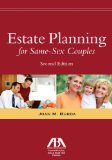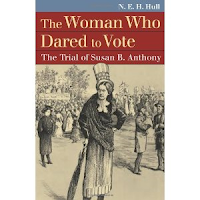 The three legal research databases, Bloomberg Law, Lexis and Westlaw, are available to Brooklyn Law School students this summer. See the details for each database below.
The three legal research databases, Bloomberg Law, Lexis and Westlaw, are available to Brooklyn Law School students this summer. See the details for each database below.
Bloomberg Law
Bloomberg Law provides unlimited and unrestricted access over the summer. Student accounts will remain active and available all summer. Students may use Bloomberg Law without restrictions. Graduating students have unlimited and unrestricted access to Bloomberg Law for six months after graduation.
Access to Bloomberg Law is through the Bloomberg Law website: http://www.bloomberglaw.com with a username and password issued by Bloomberg.
Lexis
All students with a registered Lexis Advance ID will automatically have access to Lexis Advance over the summer. No registration is required. Lexis Advance will remain accessible to students and Lexis Advance may be used for both educational and commercial purposes. Students who do not have a LexisAdvance ID should contact our Lexis representative, Beth Hoffman, at beth.hoffman@lexis.nexis.com.
Westlaw
Students have the option of extending full access to Westlaw over the summer if they meet one of the following education purposes:
- Enrolled in summer law school
- On a law journal or moot court
- Working as a research assistant for a faculty member
- Working at an unpaid, non-profit, public interest internship/externship or pro bono work required for graduation, provided you are not being paid for your research and your employer is not being paid for Westlaw research you conduct for your employer.
In order to take advantage of this extension, students must update their registration at:
http://lawschool.westlaw.com/registration/summerextension.asp
Beginning June 1, 2013, student passwords will be limited to 40 hours of access per month during the months of June and July, 2013, unless the password is extended for summer use. On August 1, 2013, returning students’ passwords will be reactivated to full academic use. Graduating students who need Westlaw access to prepare for the bar examination can extend their passwords as well for five hours of access in June and five hours in July through 07/31/2013 by completing the summer extension form and indicating that they are a graduating student.
The summer extension form is posted on the Westlaw law school homepage: www.lawschool.westlaw.com Students can sign on to the site and select the “need Westlaw this summer” icon.
 The BLS Library has an extensive collection of material on the subject of trade secrets including the second edition of Trade Secrets: Law and Practice (Call # KF3197 .Q56 2012) by David W. Quinto and Stuart H. Singer. The two highly experienced trial lawyers have assembled case law analysis and strategic advice on prosecuting and defending trade secret misappropriation actions, maintaining legally sufficient trade secret protection measures, and supervising outside attorneys in the course of litigation. The book contains an overview of litigation burdens, presumptions and inferences; a comprehensive analysis of the applicability of the Computer Fraud and Abuse Act (CFAA) to trade secret misappropriation claims; the latest developments in the evolving approaches to the Uniform Trade Secrets Act (UTSA) preemption of common law and state statutory claims; and an expanded state-by-state analysis of trade secret litigation.
The BLS Library has an extensive collection of material on the subject of trade secrets including the second edition of Trade Secrets: Law and Practice (Call # KF3197 .Q56 2012) by David W. Quinto and Stuart H. Singer. The two highly experienced trial lawyers have assembled case law analysis and strategic advice on prosecuting and defending trade secret misappropriation actions, maintaining legally sufficient trade secret protection measures, and supervising outside attorneys in the course of litigation. The book contains an overview of litigation burdens, presumptions and inferences; a comprehensive analysis of the applicability of the Computer Fraud and Abuse Act (CFAA) to trade secret misappropriation claims; the latest developments in the evolving approaches to the Uniform Trade Secrets Act (UTSA) preemption of common law and state statutory claims; and an expanded state-by-state analysis of trade secret litigation.
 The BLS Library has an extensive collection of material on the subject of trade secrets including the second edition of Trade Secrets: Law and Practice (Call # KF3197 .Q56 2012) by David W. Quinto and Stuart H. Singer. The two highly experienced trial lawyers have assembled case law analysis and strategic advice on prosecuting and defending trade secret misappropriation actions, maintaining legally sufficient trade secret protection measures, and supervising outside attorneys in the course of litigation. The book contains an overview of litigation burdens, presumptions and inferences; a comprehensive analysis of the applicability of the Computer Fraud and Abuse Act (CFAA) to trade secret misappropriation claims; the latest developments in the evolving approaches to the Uniform Trade Secrets Act (UTSA) preemption of common law and state statutory claims; and an expanded state-by-state analysis of trade secret litigation.
The BLS Library has an extensive collection of material on the subject of trade secrets including the second edition of Trade Secrets: Law and Practice (Call # KF3197 .Q56 2012) by David W. Quinto and Stuart H. Singer. The two highly experienced trial lawyers have assembled case law analysis and strategic advice on prosecuting and defending trade secret misappropriation actions, maintaining legally sufficient trade secret protection measures, and supervising outside attorneys in the course of litigation. The book contains an overview of litigation burdens, presumptions and inferences; a comprehensive analysis of the applicability of the Computer Fraud and Abuse Act (CFAA) to trade secret misappropriation claims; the latest developments in the evolving approaches to the Uniform Trade Secrets Act (UTSA) preemption of common law and state statutory claims; and an expanded state-by-state analysis of trade secret litigation.







